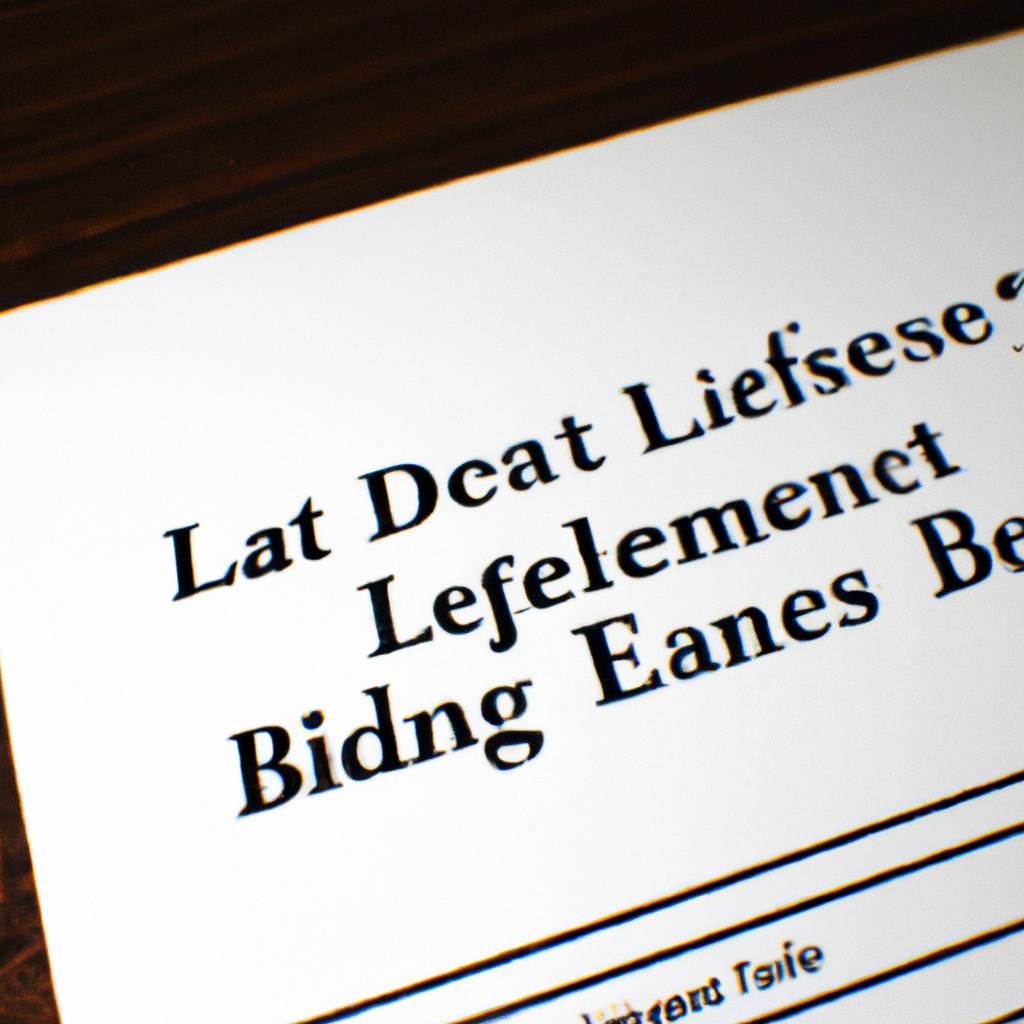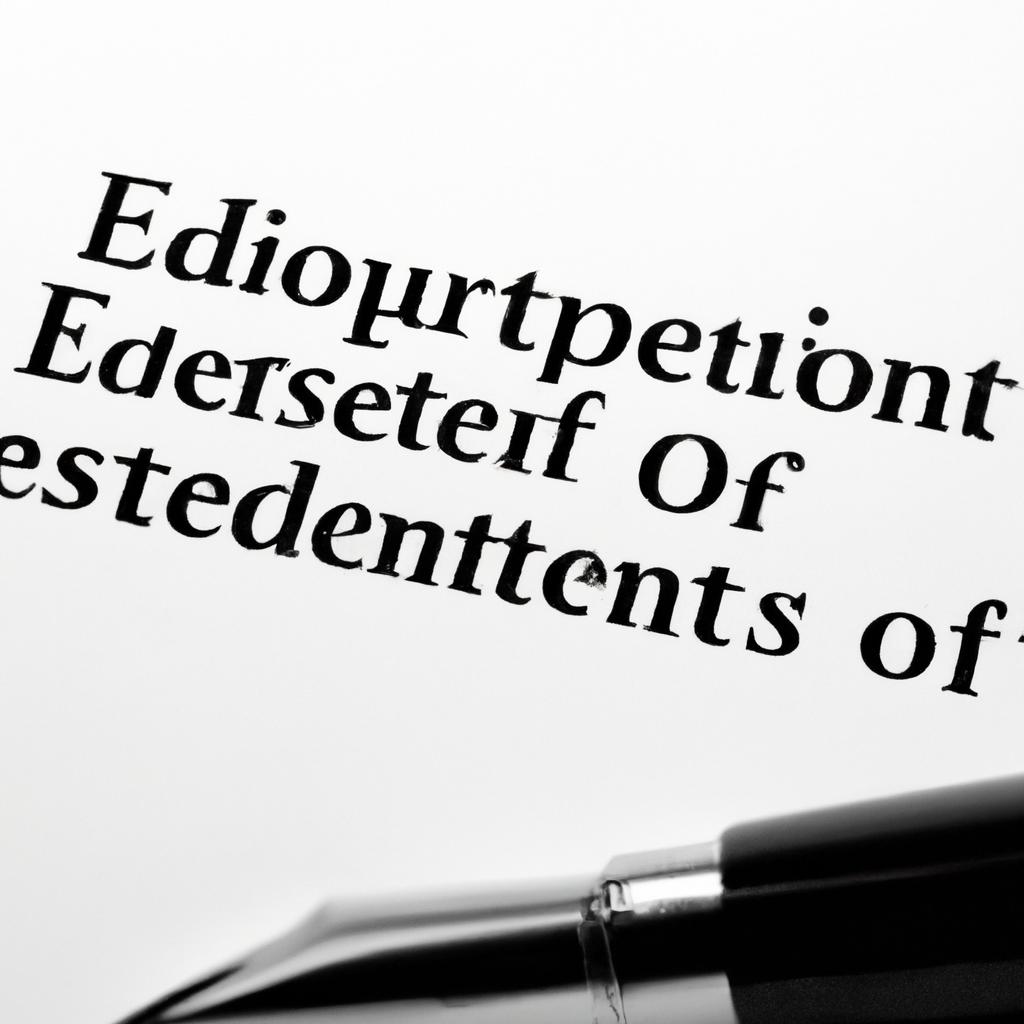In the realm of estate planning, the utilization of legal instruments such as deeds is paramount in safeguarding the interests of individuals and their heirs. One such instrument that has gained prominence in recent years is the enhanced life estate deed, also known as a Lady Bird deed. This unique legal tool allows property owners to retain full control and ownership of their property during their lifetime, while also securing the seamless transfer of the property to their designated beneficiaries upon their passing. At Morgan Legal Group, located in the bustling metropolis of New York City, our team of experienced attorneys specializes in navigating the intricacies of estate planning, probate, elder law, Wills, and trusts, including the intricacies of enhanced life estate deeds. Join us as we delve into the nuances of this valuable estate planning tool and explore how it can serve as a powerful mechanism for ensuring the preservation and transfer of assets for future generations.
Understanding Enhanced Life Estate Deeds
An Enhanced Life Estate Deed, also known as a ”Lady Bird Deed,” is a powerful tool in estate planning that allows property owners to transfer real estate to beneficiaries while retaining control and ownership during their lifetime. This type of deed is commonly used to avoid probate and ensure the property passes directly to the designated heirs upon the grantor’s death. The “enhanced” aspect comes from the unique feature that enables the grantor to retain the right to sell, mortgage, or even change beneficiaries without obtaining consent from the named beneficiaries.
With an Enhanced Life Estate Deed, the grantor can maintain control and use of the property without the need for a separate trust. This deed offers flexibility and convenience for those looking to protect their assets and ensure seamless transfer to loved ones. It is essential to consult with an experienced estate planning attorney to determine if an Enhanced Life Estate Deed is the right option for your specific circumstances and goals.

Key Features of Enhanced Life Estate Deeds
Enhanced Life Estate Deeds, also known as “Lady Bird Deeds,” are a valuable estate planning tool that allows individuals to transfer real estate property while retaining certain rights and benefits during their lifetime. One key feature of an Enhanced Life Estate Deed is that it enables the grantor to retain the right to use and live in the property for the rest of their life. This provides a sense of security and peace of mind knowing that they can continue to reside in their home without the fear of being forced to move out.
Another important feature of Enhanced Life Estate Deeds is that it allows the grantor to retain the ability to sell, mortgage, or lease the property during their lifetime. This flexibility gives the grantor control over their property and allows for changes in circumstances or financial needs. Additionally, an Enhanced Life Estate Deed allows for the seamless transfer of the property to the named beneficiaries upon the grantor’s passing, bypassing the probate process and potentially reducing estate taxes. Overall, an Enhanced Life Estate Deed can be a powerful tool in estate planning, providing both security and flexibility for individuals and their loved ones.

Benefits of Utilizing Enhanced Life Estate Deeds in Estate Planning
Enhanced Life Estate Deeds, commonly referred to as ”Lady Bird Deeds,” are an invaluable tool in estate planning for individuals looking to efficiently transfer real estate assets upon their passing. This unique type of deed allows the property owner to retain control over their property during their lifetime, while also providing a seamless transfer of ownership to a designated beneficiary upon their death. The flexibility and control offered by Enhanced Life Estate Deeds make them a popular choice amongst those looking to streamline the probate process and ensure a smooth transition of assets.
One of the key benefits of utilizing an Enhanced Life Estate Deed is the ability to avoid probate upon the property owner’s passing. This can save both time and money for the beneficiaries, as probate can be a lengthy and costly process. Additionally, Enhanced Life Estate Deeds offer protection against potential creditors, as the property is not considered part of the deceased owner’s estate. This can provide peace of mind for individuals looking to protect their assets for their loved ones. Overall, Enhanced Life Estate Deeds are a powerful estate planning tool that can help individuals achieve their long-term financial goals and ensure a seamless transfer of real estate assets.

Important Considerations When Implementing an Enhanced Life Estate Deed
An Enhanced Life Estate Deed, commonly known as a “Lady Bird Deed,” is a legal tool that allows property to pass automatically to designated beneficiaries upon the homeowner’s death, without the need for probate. This type of deed provides the homeowner with several benefits and protections, making it a popular option for estate planning.
When implementing an Enhanced Life Estate Deed, there are several important considerations to keep in mind:
- Designating Beneficiaries: Carefully consider who you want to inherit your property upon your death.
- Rights of the Life Tenant: Understand the rights and limitations of the life tenant, who retains control and use of the property during their lifetime.
- Medicaid Planning: Be aware of how an Enhanced Life Estate Deed may impact eligibility for Medicaid benefits.
| Consideration | Importance |
|---|---|
| Beneficiaries | Crucial for determining who will inherit the property. |
| Rights of the Life Tenant | Understanding these rights is essential for proper decision-making. |
| Medicaid Planning | Consider how this deed may affect eligibility for Medicaid benefits. |
Q&A
Q: What is an enhanced life estate deed?
A: An enhanced life estate deed, also known as a Lady Bird Deed, is a legal document that allows property owners to transfer ownership of their property while retaining control and benefits during their lifetime.
Q: How does an enhanced life estate deed“>enhanced life estate deed work?
A: With an enhanced life estate deed, the property owner can name beneficiaries who will inherit the property upon their passing. However, the owner retains the right to live in and use the property, as well as make decisions about it, until their death.
Q: What are the benefits of using an enhanced life estate deed?
A: One major benefit is that the property does not go through probate upon the owner’s death, which can save time and money for the beneficiaries. Additionally, the owner can still receive any income or tax breaks associated with the property while alive.
Q: Are there any drawbacks to using an enhanced life estate deed?
A: While the enhanced life estate deed can be a useful estate planning tool, it may not be suitable for everyone. It is important to consider the potential impact on eligibility for government benefits and consult with a legal professional before deciding to use this type of deed.
Q: How can someone set up an enhanced life estate deed?
A: To create an enhanced life estate deed, the property owner should consult with a real estate attorney to ensure that the document is drafted correctly and complies with state laws. The attorney can also assist with naming beneficiaries and addressing any specific concerns or circumstances.
Final Thoughts
In conclusion, an enhanced life estate deed, also known as a Lady Bird deed, can provide an innovative and flexible way for homeowners to transfer their property to their heirs while maintaining control and flexibility during their lifetime. By understanding the unique advantages and considerations of this type of deed, individuals can make informed decisions to protect their assets and ensure a smooth transfer of property. Whether you are exploring estate planning options or simply curious about alternative methods of property transfer, the enhanced life estate deed offers a creative solution worth considering. Embrace the power of planning for the future and secure a legacy for generations to come with this innovative legal tool.


